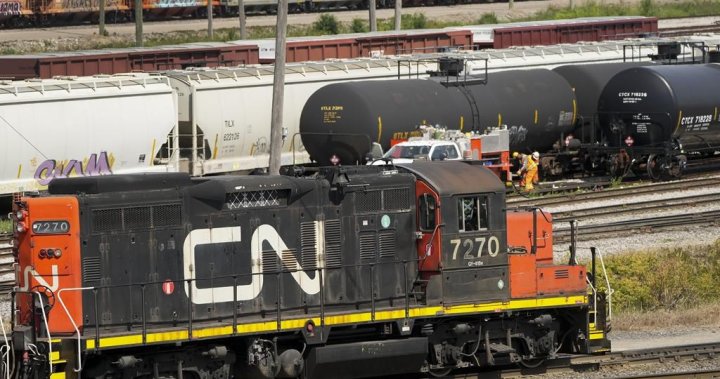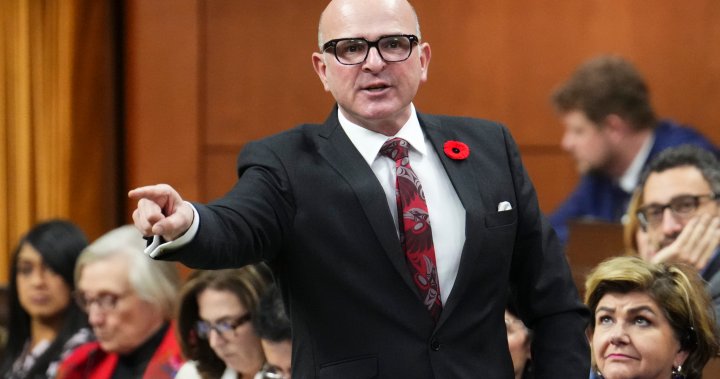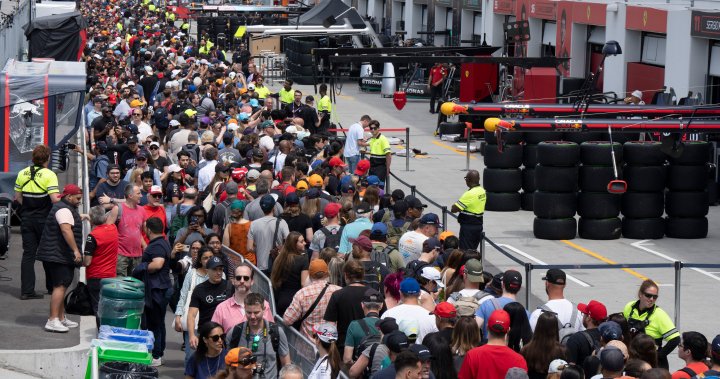The country’s labour tribunal says rail employees do not carry out essential work, opening the gate to a full-fledged strike in less than two weeks that has the potential to snarl the supply chain nationwide.
In a pair of rulings Friday, the Canada Industrial Relations Board said a work stoppage would pose no “serious danger” to public health or safety, despite concerns around food security, fuel supply and water treatment.
Consequently, in the event of a work stoppage, employees of the two main railways would not be compelled to continue hauling goods, including key commodities such as chlorine for water and propane for care centres.
The 13-day cooling-off period ordered by the tribunal means that if new contracts cannot be reached, a countrywide strike could occur as early as Aug. 22.
Shippers and producers say the potential job action by workers at Canadian National Railway Co. or Canadian Pacific Kansas City Ltd. — or both simultaneously — would halt freight traffic, clog ports and disrupt industries.

In May, then-labour minister Seamus O’Regan asked the industrial relations board to review whether a work stoppage would jeopardize Canadians’ health and safety after the union voted overwhelming to approve a strike mandate. Friday’s ruling effectively “places the parties back in the position they were in” before the ministerial referral, the board wrote.
The email you need for the day’s
top news stories from Canada and around the world.

Get daily National news
Get the day’s top news, political, economic, and current affairs headlines, delivered to your inbox once a day.
“There is no doubt that a work stoppage at CN would result in inconvenience, economic hardship and, possibly, as some groups and organizations have suggested, harm to Canada’s global reputation as a reliable trading partner,” the tribunal said in a unanimous decision.
However, the question of what constitutes an essential service under the Canada Labour Code is “very narrow,” it continued.
“The board is satisfied that, at this time, a strike or lockout at CN would not pose an immediate and serious danger to the safety or health of the public.”
The tribunal said the same thing in a separate ruling concerning Canadian Pacific.
The sticking points at the bargaining table are crew scheduling, fatigue management and safety, said Teamsters spokesman Christopher Monette. The union has rejected binding arbitration with both companies.
Each side says the other has made excessive demands that led to a weeks-long bargaining impasse.

Canadian railways haul some $380 billion worth of goods and more than half of the country’s total exports each year, according to the Railway Association of Canada.
Anxiety over a strike by some 9,300 employees has already cost the two railways some business after some customers started to reroute cargo following the strike mandate authorization by union members on May 1.
Federal Labour Minister Steven MacKinnon, who replaced O’Regan after the latter resigned from cabinet three weeks ago, met Monday morning with leaders from the two railroad operators and the union.
In an Aug. 2 phone interview, MacKinnon said the parties have failed to treat the issue with “sufficient urgency,” noting talks broke down over the previous few weeks — though they resumed on Wednesday.
The minister said the two sides need to hash out a deal themselves rather than rely on government intervention, such as back-to-work legislation.
“The approach that we have found that works is where parties reach agreement at the bargaining table. Those provide the most enduring benefits to employers, to employees and the most satisfactory outcomes. And that is our plan in this case,” MacKinnon said.
© 2024 The Canadian Press





